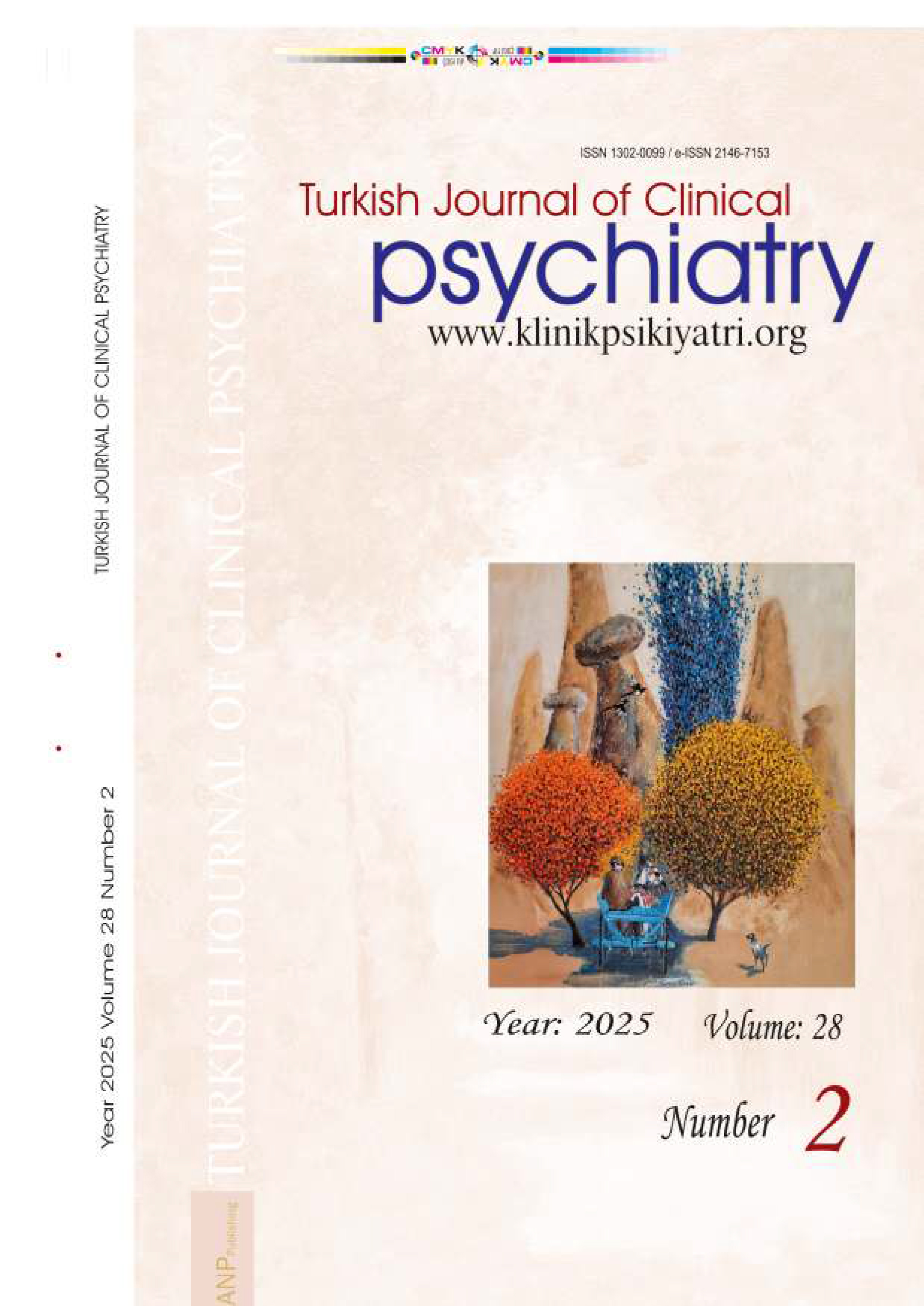





Are the consequences of substance use disorder more severe than schizophrenia?: Effects on the mothers and the patients
Meltem Saraçoğlu1, Demet Atlam2, Betül Akyel Göven3, Zeki Yüncü41Bursa Provincial Health Directorate, Bursa, Turkey2Ege University Institute On Drug Abuse, Toxicology And Pharmaceutical Science, Department Of Drug Addiction, Izmir, Turkey
3Ege University Research And Application Center Of Child And Adolescent Alcohol Drug Addiction, Izmir, Turkey
4Ege University Faculty Of Medicine, Department Of Child And Adolescent Psychiatry, Izmir, Turkey
INTRODUCTION: The aim of this study is to examine effects the mental disorder on the patients and their mothers. Also it was aimed to evaluate the patients in terms of internalized stigma, and their mothers' in terms of beliefs about the illness and their mental status as hopelessness, depression, burnout levels.
METHODS: Participants with SUD (n=30), SCH (n=30), control group (CG) (n=30) and all their mothers (n=90) were included in the study. Pearson chi-square, t test, ANOVA, Dunnet's C post hoc and Scheffe post hoc tests, effect size test eta squared (η2) and Pearson correlation tests were used.
RESULTS: Internalized stigma of patients were similar, different from CG. Depression and burnout levels of mothers of patients with SUD were higher than other groups. The depression levels of mothers were significantly different and had a large effect. Hopelessness was higher in mothers of SUD patients than mothers of CG. The relationship was found between SUD patients’ mothers' depression, hopelessness, burnout and their negative beliefs toward MI.
DISCUSSION AND CONCLUSION: It is seen that the presence of MI has a huge impact on self-stigmatization of the patient and depression, burnout and hopelessness in their mothers. SUD effects on the mother are more severe. Mental health of the mothers affects their perspectives on MI.
Madde kullanım bozukluğunun sonuçları şizofreniden daha şiddetli olabilir mi ?: Annelere ve hastalara olan etkileri
Meltem Saraçoğlu1, Demet Atlam2, Betül Akyel Göven3, Zeki Yüncü41Bursa İl Sağlık Müdürlüğü, Bursa, Türkiye2Ege Üniversitesi Madde Bağımlılığı, Toksikoloji Ve İlaç Bilimleri Enstitüsü, Madde Bağımlılığı Anabilim Dalı, İzmir, Türkiye
3Ege Üniversitesi Çocuk Ve Ergen Alkol Madde Bağımlılığı Araştırma Ve Uygulama Merkezi, İzmir, Türkiye
4Ege Üniversitesi Tıp Fakültesi, Çocuk Ve Ergen Ruh Sağlığı Ve Hastalıkları Anabilim Dalı, İzmir, Türkiye
GİRİŞ ve AMAÇ: Bu çalışmanın amacı, ruhsal bozukluğun, şizofreni olan hastalar ile madde kullanım bozukluğu olan hastalar ve anneleri üzerindeki etkilerini incelemektir. Ayrıca hastaların içselleştirilmiş damgalanma düzeylerinin, annelerinin hastalığa ilişkin inançlarının, annelerin ruhsal durumlarının umutsuzluk, depresyon, tükenmişlik düzeyleri açısından değerlendirilmesi amaçlanmıştır.
YÖNTEM ve GEREÇLER: Madde kullanım bozukluğu (n=30), şizofreni (n=30) ve kontrol (n=30) gruplarından oluşan katılımcılar ile anneleri (n=90) çalışmaya dahil edildi. Pearson ki-kare, t testi, ANOVA, Dunnet's C post hoc ve Scheffe post hoc testleri, etki büyüklüğü testi eta kare (η2) ve Pearson korelasyon testleri kullanıldı.
BULGULAR: Hastaların içselleştirilmiş damgalanmaları, kontrolden farklı, hasta grubunda benzerdi. Madde kullanım bozukluğu olan hastaların annelerinin depresyon ve tükenmişlik düzeyleri diğer gruplara göre daha yüksekti. Annelerin depresyon düzeyleri anlamlı derecede farklıydı ve etkisi büyüktü. Madde kullanım bozukluğu hastalarının annelerinde umutsuzluk, kontrolün annelerine göre yüksekti. Bu grubun annelerinde depresyon, umutsuzluk ve tükenmişlikleri ile hastalığa olumsuz bakış açıları arasında ilişki bulundu.
TARTIŞMA ve SONUÇ: Ruhsal hastalığın varlığının hastanın kendini damgalamasında ve annelerinde depresyon, tükenmişlik ve umutsuzluk üzerinde büyük etkisi olduğu görülmektedir. Madde kullanım bozukluğunun anneler üzerindeki etkileri daha şiddetlidir. Annelerin ruhsal durum, ruhsal hastalığa bakış açılarını da etkilemektedir.
Manuscript Language: English
(894 downloaded)










